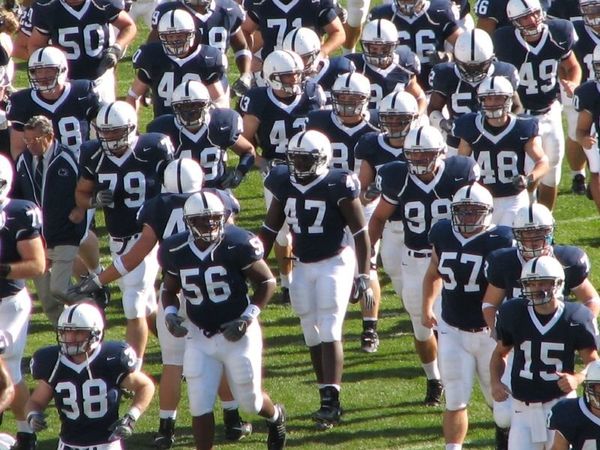It’s funny that while most people say they want a lot of friends, they refuse to associate with those that need company the most. Social exclusion still exists in more ways than a construct of law or government—not only do we build it up ourselves, but we accept it as nature of the world, refuse to tear it down. In the adult workplace, we're mature to the point (hopefully) where there’s usually bound to be someone to reach out a hand to the misfit, but in schools, among our youth, it runs rampant. Being excluded has numerous psychological and physical consequences, such as depression. Suicidal thoughts. (I experienced both firsthand.) Low self esteem. Aggression. Drugs and alcohol. Inability to sleep.
Until third grade, social exclusion was a faraway notion in my mind. I had friends through pre-k and the first few years of elementary school—never felt loneliness morph into grief. But right before third grade, my family moved to a new county. And I had to go to a new school.
As someone who has always been shy, self-conscious and awkward, recess was hell. It was okay within the classroom; I was smart, liked to answer questions and maybe could talk to a couple of people around me. But during recess, when we were released to do our own thing, I found myself on a different page. Everyone already had formed their little cliques, playing kickball or freeze tag, whereas I sat in the grass and watched, struck with an inability to say a word. Even worse was when I became intrepid enough to try to make friends, only to find devastation in my wake. I’d talk to a couple of students within the classroom, try to tag along at recess, but they'd leave me for whatever reason.
I came to accept that I had no friends. I questioned why. And while much blame falls upon me and my shyness, it is undeniable that it also falls on the rigidity of social norm.
During elementary school, loyalty seemed to be a foreign concept to most. Through the remainder of my time there, I had different friends every year. Few stuck around through it and from there to middle school. (To those that did, I thank you with every piece of me.)
Middle school was slightly better. I made friends who were more than just sweet and temporary, who are still my friends now. Even so, I couldn’t be with them all the time. Scheduling conflicts and whatnot created classes where I didn’t really know anyone. And even if I had an acquaintance or two, they would oftentimes have better friends and would desert me for them.
I hated eighth grade PE class in particular to an extreme—I knew no one there (and that was the class with the most people!) Day by day, I dreaded having to go undergo the agonizing hour in my drab PE uniform, an outfit identical to those of all the other kids and that seemingly marked us as one. But it was the worst. I had no friends, and even the people I did know wouldn’t really talk to me. I became so utterly exhausted from trying to create bonds with others and finding them disintegrate, wondering what type of poison was within myself and was making me fall short every time. Was I too nerdy, uncool and ugly? Was I not funny enough? Was it just because I wasn’t athletic?
Every time I attempted to talk, my voice would collide against a concrete blockade and dissipate. So I became even more reserved, trying to blend with the shadows and not draw attention to my singularity. We had a dance unit, and people wouldn't want me to be in their dance group. The boys would complain when they were paired with me. And though I tried to flit by unnoticed to save more pain than there already was, it was fruitless. One guy I was paired to dance with feigned friendliness and offered me a high five, and when I went in to receive it, he drew away and chuckled at my stupidity. Another guy intentionally threw a basketball into my head, twice. I couldn’t tell the teachers for something so seemingly petty. In those situations, what is there really that I can do without risking trouble?
It made me so depressed. I would count down every second till the end of class. I would breathe a sigh of relief just if I hadn't been too horribly embarrassed.
But I still remember everyone who did talk to me, all those kind souls who would make my day, who reached out to me when they had no obligation to, who with something small would make me so uninhibitedly happy .
One day in PE, we were walking towards the track. I was trying to time my steps relatively fast, hurrying so I could be there as soon as possible without feeling the invisible pressure of the probing eyes boring into me from every direction, but not moving too quickly to shine a spotlight on myself. I thought the walk would be lonely again, a short trek that was nothing on the surface but really epitomized everything I hated about my situation. Except it wasn’t.
This one guy I hardly knew began walking next to me, pacing his steps with mine; I tried to edge away, thinking the worst, that he was trying to embarrass me with closeness and mockery, something so subtle that teachers would never notice.
But then he started to talk to me. It wasn’t mean, and it wasn’t condescending. It was simple, nice and lighthearted. We made jokes, and I felt welcome enough to let go of my wooden stiffness, to be humorous. I was very awkward and taken by surprise, maybe a bit uncomfortable, but it was due to the unfamiliarity of it all; it was so unprecedented. I like to believe that it sounded like any conversation two friends would normally have. But, most of all, it made me happy, so much that I was almost drunk with joy the rest of the day. And perhaps that’s quite extreme for just one five-minute conversation, but it really shows that a nice, simple gesture like talking to someone can make so much difference. And I know it sounds cliché, but aren't clichés still rooted in truth?
Thank you to him. Thank you to the girl in third grade who said she noticed I was alone and introduced me to new friends, even if it would fall apart later. Thank you to the girl in fourth grade who I squashed berries with outside, though you moved at the end of the year and I never saw you again. Thank you endlessly.
Nowadays, as a high school student, where I have friends in most of my classes and where people are generally more open, I try not to take any solidarity with my peers for granted. I try to have empathy for those who are alone because I know how it feels and I know how the ache is a memory you’ll carry with you forevermore. Even so, there are still moments where I feel alone, classes where I have less friends and though I wish they didn’t exist, I think it’s good that they keep me grounded, ensure that I won’t forget times when it was much, much worse.
Yet still, I often feel the social chains deterring me from branching out. I remember recently I wanted to talk to one girl so desperately, but I felt the same shyness she probably felt, that I had felt so often before, cropping up again. However, the judgement of my friends tied me down to social protocol. So though I saw so much of her in me, initially I did little. I only gradually started talking to her. But I wonder: if I had been more open from the beginning, would we be closer?
It takes true fearlessness to try to be friends or even talk to those below you socially, to someone your friends may judge you for—but social mobility is at least a bit fluid, and they could be above you next year, who knows? They are innately not in the least bit below you in any other form, not morally, not characteristically.
The next time you are in public with friends and you see someone who looks distraught and alone, I dare you to introduce yourself to them. Or, at least, strike up a kind conversation. Let sympathy rule over looking cool, even if you have to muster every particle of bravery in you.
Take a chance on someone you don’t know. It’s something small on your part, but it’s infinite for them.




















